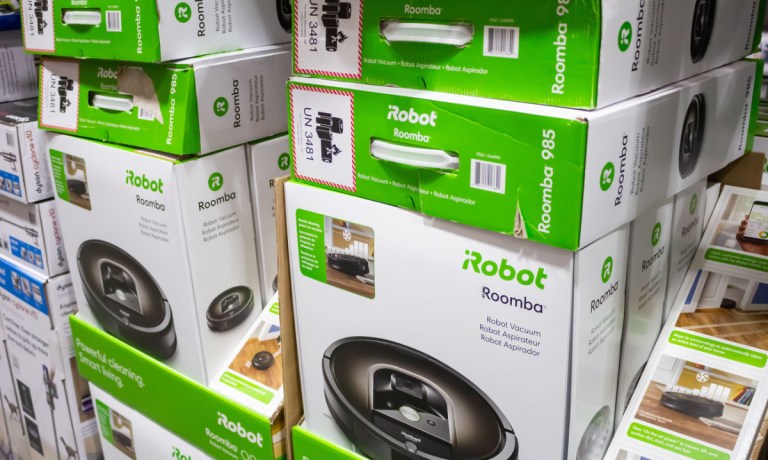Amazon Jettisons Plans for $1.7 Billion iRobot Purchase

Citing a tough regulatory environment, Amazon has called off its $1.7 billion purchase of iRobot.
The tech giant announced Monday (Jan. 29) that its agreement to purchase the robot vacuum maker — first signed in 2022 — “has no path to regulatory approval” in the European Union (EU) and was therefore being canceled by the two companies.
“We’re disappointed that Amazon’s acquisition of iRobot could not proceed,” David Zapolsky, Amazon SVP and General Counsel, said in a news release, calling it the result of “undue and disproportionate regulatory hurdles.”
With the deal dead, iRobot — maker of the Roomba vacuum cleaner — said it is beginning a restructuring that will result in the loss of 350 jobs, or 31% of its staff. CEO and Chairman Colin Angle will also step down, the company said Monday.
These decisions are being made so iRobot can “rapidly align our operating model and cost structure to our future as a standalone company,” board chairman Andrew Miller said.
The announcement follows reports from last week that Amazon had met with EU representatives who told them the deal was likely to be rejected, though a final decision wouldn’t come until next month.
Amazon missed a deadline last week to submit remedies that would have addressed the EU’s concerns over the deal’s impact on competition.
The European Commission (EC) had launched an investigation into the acquisition during the summer of 2023.
“Amazon is both an online marketplace and a retailer,” Margrethe Vestager, executive vice president in charge of competition policy at the EC, said in a news release. “We are concerned that, by acquiring iRobot, Amazon may use such dual role to foreclose access by iRobot’s rivals to its marketplace. With our in-depth investigation, we will also investigate whether Amazon would use data collected by iRobot to strengthen its position as an online marketplace provider.”
Two months later, the EC reportedly suspended its investigation, saying that it was missing crucial information from both companies.
The cancellation of the deal is happening at a time when consumers are growing more comfortable with smart devices in their homes.
For example, as noted here last month, “ownership of smart refrigerators has risen from 5% in 2019 to 9% in 2023, indicating a growing interest in connected appliances.”